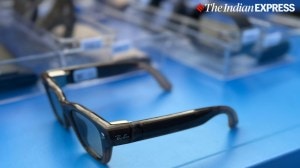When image becomes the big picture
At a rally for Barack Obama in Detroit on Monday, two Muslim women said they were prohibited from sitting behind...

At a rally for Barack Obama in Detroit on Monday, two Muslim women said they were prohibited from sitting behind the candidate as they were wearing head scarves and campaign volunteers did not want them to appear with him in photographs or live television coverage.
The Obama campaign said it quickly called the women to apologise after learning of the incident. “It doesn’t reflect the orientation of the campaign,” said Anita Dunn, a senior adviser to Obama. “I do not believe that mistake will be made again.”
But the incident, first reported by Politico.com, pointed to pitfalls the campaign faces as it moves into the general election and seeks to maintain control of Obama’s image by tightly managing his public appearances.
The Obama campaign is vigilantly fighting erroneous information that has spread on the Internet that he is Muslim and emphasising his patriotism and American story, with flags in abundance. In Washington on Wednesday, he invited photographers to his meeting with new members of his national security team and retired military officers supporting his candidacy.
The campaign on Monday barred cameras from a large gathering of African-American civic leaders Obama attended. It recently refused to provide names of religious figures with whom Obama met in Chicago and directed some of them to avoid reporters by using a special exit. And on Wednesday, the campaign orchestrated Michelle Obama’s appearance on the friendly set of “The View” and a flattering spread in the pages of Us Weekly.
While the strategy has won compliments from political professionals of both parties, it has also created some early turbulence for a candidate who has run on promises of openness and cultivated a grass-roots following and a cottage industry of homemade campaign videos, memorabilia and street murals.
Obama’s campaign is making a transition typical of any newly minted presidential nominee preparing for a general election race. It mirrors the stagecraft once so successfully practised by the campaigns of President Bush to the envy of Democrats.
“This guy is one of two people who can be President of the US,” said Stuart Stevens, a Republican strategist for President Bush in his 2000 and 2004 campaigns. “He’s not going door-to door-in Iowa anymore, and I think people expect things to be different when you’re the nominee.”
“The same with John McCain—he’s not going to be able to spend as much time in living rooms,” Stevens said. “It’s just the nature of the game changing.”
But McCain’s campaign has been faulted for being too lax in protecting his image, facing specific criticism for his prime-time speech before a relatively small crowd and an odd green backdrop the night Obama claimed his party’s nomination. Yet while McCain’s aides have had their share of skirmishes with the press, they still enjoy a reputation for giving reporters traveling with him an unusual amount of access.
Strategists for Obama, the country’s first black nominee, have made it clear that they believe they need to take extra steps to control his image. But such efforts at times appear to conflict with the candidate’s stated desire to be unusually transparent, and they have already occasionally put him at loggerheads with the press pushing for greater access to him now that he is the presumptive nominee.
In spirited discussions with reporters barred from Monday’s meeting with African-American civic leaders, aides said that no cameras were allowed because the participants wanted the meeting to be private. Other aides said the lighting was not properly set up for television quality. When Obama met with religious leaders last week, his campaign kept out photographers and refused to share the list of participants.
Photos





- 01
- 02
- 03
- 04
- 05


























